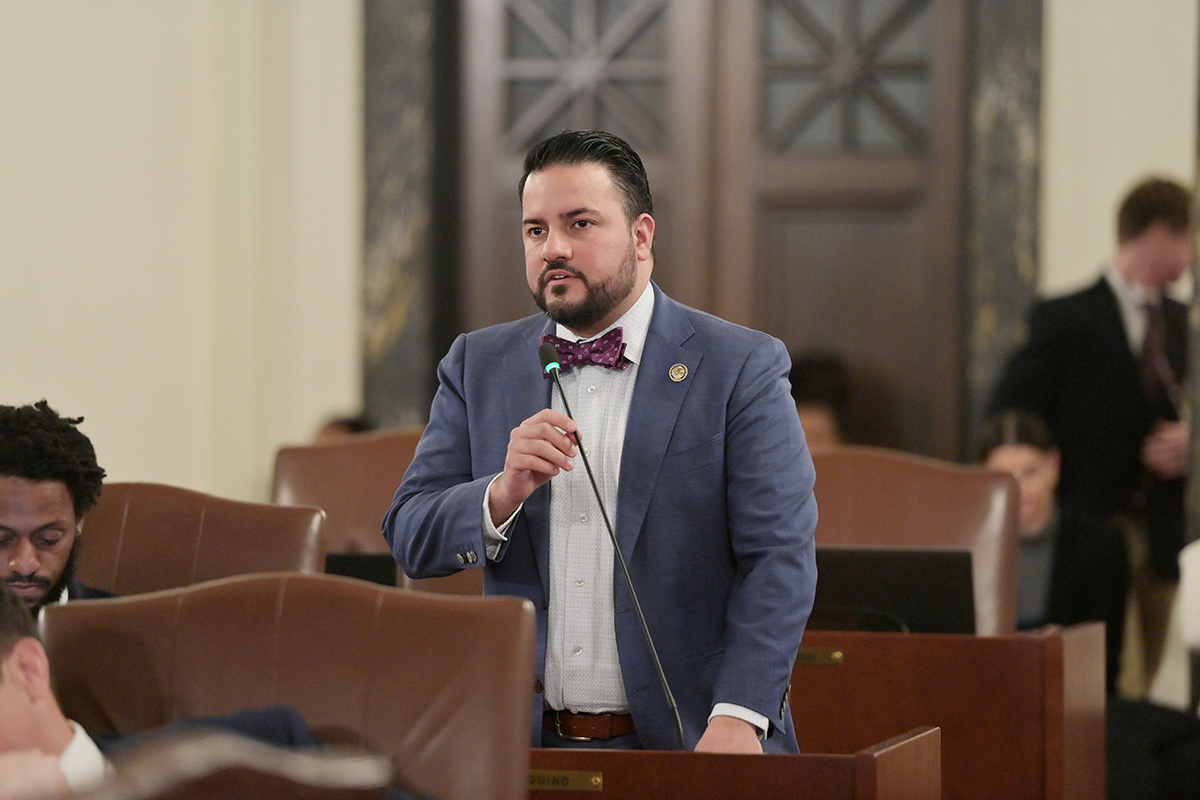 State Senator Omar Aquino passed a measure through the Senate Friday to remove timeline barriers to licensing for new architects in Illinois.
State Senator Omar Aquino passed a measure through the Senate Friday to remove timeline barriers to licensing for new architects in Illinois.
“By incorporating recommendations adopted at the federal level, we are aligning architecture licensing standards while removing barriers that have an inequitable impact on applicants from different backgrounds,” said Aquino (D-Chicago). “Removing the five-year cap will expand inclusivity and diversity within the profession and contribute to the growth of the field for future architects in Illinois.”
Last year, the National Council of Architectural Registration Boards retired a licensing standard known as the “rolling clock policy” that required individuals seeking licensure to successfully complete all six divisions of the standard Architect Registration Examination within five years of passing the first exam division. After five years, exam results would be rendered invalid and individuals seeking licensure would have to start the exam process over. Among other factors, this timeline has resulted in an increased rate of prospective licensees abandoning the process — especially those from disparately impacted populations.
NCARB data show that disparities in completing the licensing process related to gender, race and age persist, contributing to bias in the profession. White applicants have consistently been the least likely to abandon the licensure path, and over time, more than one-third of all prospective architect candidates stop pursuing licensure.
Aquino’s measure aims to update Illinois’ licensing standards to address these disparities by ensuring state law reflects the change made by the NCARB. The legislation would remove the five-year deadline and require only that applicants complete all exams required for licensure.
“When we learn that fixable policies are hindering the growth of a diverse profession, it’s important we take steps to eliminate the bias baked into the rules and regulations of the system,” Aquino added. “This is a simple change that will move the architectural profession toward equity without compromising skill, integrity or qualifications.”
Senate Bill 2819 now goes to the House for consideration.






